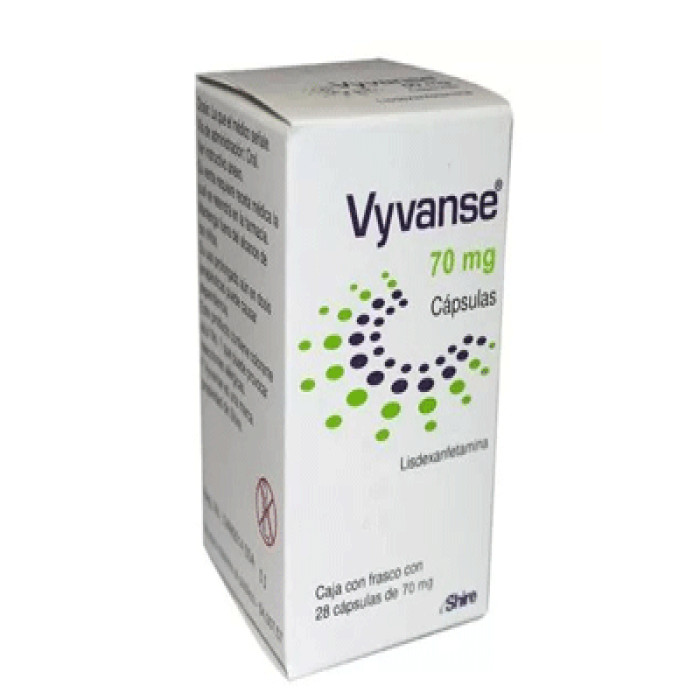
Vyvanse is a medication used to treat attention deficit hyperactivity disorder (ADHD) in adults and children ages 6 and older. It is a prodrug, which means it is activated in the body after ingestion. It works by increasing the levels of certain neurotransmitters in the brain, such as dopamine and norepinephrine, which can help improve focus, attention, and impulse control in individuals with ADHD. It is available in capsule form, with the active ingredient lisdexamfetamine.
Vyvanse is typically prescribed to be taken once daily in the morning, with or without food. The dosage and frequency of administration should be determined by a healthcare provider based on the individual's needs and response to the medication. It is important to follow the instructions provided by the healthcare provider and not to exceed the recommended dosage. It should be swallowed whole and not crushed or chewed as it may lead to the release of a potentially toxic dose of lisdexamfetamine.
Vyvanse is used to treat attention deficit hyperactivity disorder (ADHD) in adults and children ages 6 and older. It can help to improve focus, attention, and impulse control in individuals with ADHD. It may also be used to treat binge eating disorder (BED) in adults. It has been found to be effective in improving symptoms of inattention, impulsivity, and hyperactivity in ADHD patients.
Side Effects
Common side effects of Vyvanse include decreased appetite, insomnia, stomach pain, and headache. More serious side effects may include changes in blood pressure and heart rate, and mental health issues such as aggression, depression, and mood swings. It can also cause a stimulant-induced psychosis, characterized by symptoms such as hallucinations, paranoia, and delusions. If you experience any of these symptoms, it is important to contact your healthcare provider immediately.
It is also important to note that Vyvanse can interact with other medications, including antidepressants, blood pressure medications, and blood thinners. If you are taking any other medications, it is important to inform your healthcare provider before taking Vyvanse. It should also be avoided in patients with hypertension, cardiovascular disease, or a history of drug abuse.
Vyvanse is a controlled substance and can lead to physical dependence and addiction. It should be used only as prescribed by a healthcare professional and not to share it with others. It should be stored in a secure place and out of reach of children and pets.


